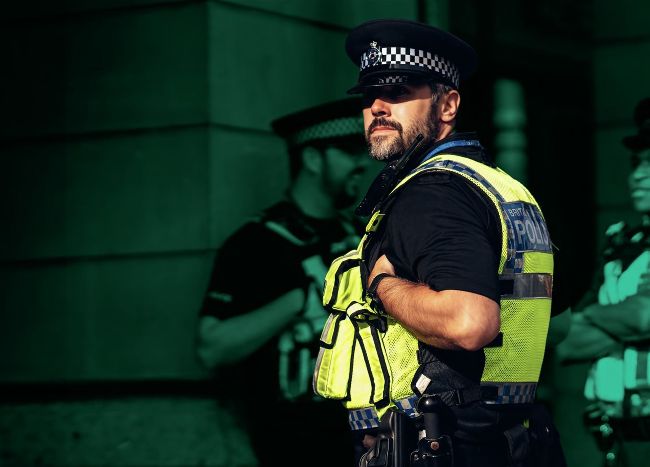A NEW ERA FOR POLICE TRAINING?
When tragedies like the Plymouth shooting happen there are lives ruined and inevitable backlashes against the law -abiding shooting community. Just possibly, however, there may be something good that has come out of the whole incident

IMAGE: SHUTTERSTOCK -SANDOR SZMUTKO
Among many other recommendations, the coroner reported, “ There was a serious failure at a national level by the government, Home Office and National College of Policing to implement the recommendation from Lord Cullen’s report in 1996 arising out of the fatal shootings in Dunblane, to provide training for Firearm Enquiry Officers (FEOs)”.
Back in June 2023, the policing minister, Chris Philp MP, announced that the government would be providing £500,000 for the College of Policing and the NPCC to establish a new national training programme “that will become mandatory for police firearms enquiry officers”.
A year on, I can report progress. A handful of experienced licensing officers have been seconded to the College of Policing in Ryton-on-Dunsmore in Warwickshire. They have been working on the formulation of a professional development scheme for FEOs. This will include pre -course reading and assessment, then a five -day course at the college.
There will also be a practical day, visiting a range to get more practical experience of what the guns that will be going onto certificates look like.
I was invited, with other stakeholders, to the college to hear about the details. First impressions were good. The college is absolutely the right place for this work to happen. As we know, there are huge problems with consistency of licensing across the country. Having such a centralised facility handle the syllabus and training delivery is a great first step towards levelling the playing field and removing the #makingitupastheygoalong phenomenon.
On your behalf, the GTA spends a lot of time correcting some “howlers” in the licensing process. A recent example of success was a department issuing renewed certificates without the guns being listed. Staff insisted this was the right thing to do for operational risk management. Despite face-to-face meetings, they dug in and the RFDs were left to refill the certificates and provide notifications. I had to write a paper explaining the inconsistency with nationally approved processes and the fundamental flaw in their logic. It was then reviewed at a senior level and the process corrected.
“ We have had numerous police staff coming on the GTA RFD training course and they have found it really useful to understand not only the trade procedures and so on but also how dealers have to operate in their business environment”
The first FEO course is being run in November and I wish the team well in its delivery.
There are, however, potential challenges. The chief constables have great autonomy of how they run policing and the training of their firearms licensing staff. As yet, this is not a mandatory requirement. It needs to be. Then, what about those that have been in the job for years? Will they be happy to go on the course to get the “tick in the box”?
There are carrots and sticks. The carrot is that the forces have an attractive, centralised course that will hopefully provide them with more efficient and effective staff. The stick is that, in 2025, His Majesty ’s Inspectorate of Constabulary will be examining firearms licensing as part of their oversight of forces.
This “qualification”, of course, only applies to the FEO. There are many others in the departments that will need support. Managers, decision makers and administrators should also be considered. Furthermore, the course, as it stands, only includes half a morning looking at licensing the RFD. That is definitely going to need additional training resource.
We have had numerous police staff coming on the GTA RFD training course and they have found it really useful to understand not only the trade procedures and so on but also how dealers have to operate in their business environment. We have offered ongoing support to the college to help with the additional learning required for engaging with the trade.
I am back in Bisley soon to see a pilot “hands-on” day with presentations from a range of our shooting organisations to the College of Policing team. The idea is to run these regionally for the “students” near to where they live. For those of you involved in clubs and ranges, you may get asked to help support these days. I hope you will.
There is still a long way to go — and I still find myself writing letters to police and crime commissioners to pay more attention to the quality and performance of their licensing departments. However, the fact that this has finally been organised is a great start. The £500,000 has probably been used up in this first stage. Now we need chief constables to engage and pay to get their staff properly trained to a consistent, proper national standard. Start asking questions about whether your local force is sending people on the scheme. We cannot afford any further mistakes like Plymouth.